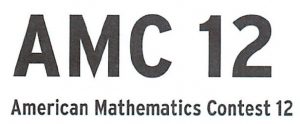Online Summer Courses and Camps
 CyberMath Academy now offers live online summer camps and courses. Sharpen your math/coding skills with our online courses!
CyberMath Academy now offers live online summer camps and courses. Sharpen your math/coding skills with our online courses!
– Advanced Middle and High School Math (AMC competitions prep)
– Algebra 1 and 2
– SAT Prep
48 Hours of Live Online Sessions!
Format: Live online teaching and problem solving sessions in addition to online activities to be completed every week. Each session is 3 hours long with three 45-minute long lectures with two 15-minute breaks in between.
Schedule: 4 weeks in July. July 6th-30th. Monday through Thursday, 3 hours a day.
Outstanding Teachers!
The same great instructors that you would have at our summer camps!
Great Teachers

Alex is a co-author of the book series Proofs in Competition Math. He was the highest scorer at the Nevada MathCounts State competition and participated in the MathCounts National. He scored in the top 2 percent on AMC 12. He wrote problems for 3 math competitions, co-organized two of them with the Northern Nevada Math Club. He currently studies mathematics at the University of California, Berkeley, and is a problem writer for the Berkeley Math Tournament.

Consuelo Hylton – Consuelo is an assistant movie producer in Hollywood. She graduated with honors from Harvard University with a degree in English. While at Harvard, Consuelo wrote plays and performed percussion with the Harvard Pops Orchestra. For her thesis, Consuelo wrote a full length dramatic play titled Toward Home. After her freshman year, Consuelo tutored the SAT one-on-one with high school students.

Philip LaPorte - Philip is an extraordinary person studying Mathematics and Philosophy at Harvard University. He was awarded Harvard College Veritas Award given to only one student every year, who shows an exceptional commitment to intellectual curiosity. He completed 12 college courses while in high school in mathematics, physics and philosophy (attention please: 12 courses, not 12 credits) and graduated as valedictorian from his high school. As a National Merit Scholar, he scored 1600 out of 1600 on SAT. He has been teaching AP Statistics, AP Calculus BC and SAT Math since 2015. He has been a member of the Editorial Board at The Harvard Crimson.

Bryce Hunter McLaughlin - Bryce is an excellent teacher. He has a bachelors degree in Mathematics from Harvey Mudd College and currently studying towards his PhD in Business at Stanford University.
Please see our faculty page for our instructors. Our online courses will be taught by some of the instructors listed on our faculty page or other outstanding teachers with similar credentials.
Times:
Advanced High School Math with AMC 10/12 Problems: 3:30 pm – 6:30 pm Eastern Standard Time
Advanced Middle School math with AMC 8-10 Problems: 12 pm – 3 pm Eastern Standard Time
Algebra 1 and Integrated Math-1: 12 pm – 3 pm Eastern Standard Time
Algebra 2: 3:30 pm – 6:30 pm Eastern Standard Time
SAT Prep: 3:30 pm – 6:30 pm Eastern Standard Time
Ages: 11-18.
Course Tuition: $860 if paid before April 1st, $960 after April 1st.
Problem Solving Sessions and Small Group Tutoring: Sign Up for 24 an additional 24 hours of problem solving sessions and small group tutoring (only 3 students) at only $480 (normally $800 if signed up separately). There will be two 3-hour sessions per week at a convenient time for all 3 students in the group.
Please scroll down for more information.
.
Courses offered at our coding camp
Courses
-
Advanced Middle School Math with AMC 8-10 / MathCounts Problems
This course covers the main topics in middle school math. Students will be mastering these topics while solving challenging problems at the level of or from MathCounts, AMC-8, AMC 10 and similar competitions. Students go above and beyond Common Core standards in this brain-stimulating course. Students will also solve mathematical puzzles and cyphers and learn topics that are typically not covered at traditional school settings.
Recommended Grade Levels: Although we do not limit students by grade level, this course is typically recommended for students in grades 4th-8th.
Course Description: This course will familiarize students with the essential
 concepts and techniques in Pre-Algebra, Algebra I, Geometry, Number Theory and Combinatorics. We will have a specific emphasis on problem solving where the students will constantly be challenged to think creatively.
concepts and techniques in Pre-Algebra, Algebra I, Geometry, Number Theory and Combinatorics. We will have a specific emphasis on problem solving where the students will constantly be challenged to think creatively.Contest Preparation: MathCounts, AMC 8, AMC 10.
Course Objectives: As of the completion of this course, students will:
1. Have complete mastery of concepts covered in standard Pre-Algebra, Algebra I and Geometry courses, as well as topics not covered in traditional school curriculum.
2. Be able to explain and employ important theorems and techniques used in Combinatorics, Number Theory, and Geometry.
3. Be able to reduce unfamiliar problems to basic principles, and cleverly employ techniques they’ve learned to find shortcuts in solution methods.
Teaching Philosophy: We believe that building good problem-solving skills is as (if not more) important than knowing lots of theorems. As such, although the course will cover a considerable amount of material, the main emphasis will be on building problem-solving intuition and training students to think creatively when faced with classes of problems they’ve never seen before.
Class Participation: Students are expected to actively participate in class. We will employ the Socrates method, which is a cooperative dialogue between the students and teacher to stimulate critical thinking. Students will also collaborate with classmates while solving challenging problems.
Curriculum: The course curriculum is owned and copyright by CyberMath Academy. The class material is composed of unique blends of problems hand picked from prestigious competitions from around the globe, along with many historical problems and fascinating puzzles.
Algebra
• Ratios and Proportions
• Algebraic Expressions
• Linear Equations
• Functions
• Inequalities
• Polynomial Expressions
• Pascal’s Triangle
• Binomial Theorem
• Quadratic EquationsCombinatorics
• Counting
• Statistics
• Probability
• Permutations
• CombinationsNumber Theory
• Divisibility
• GCD and LCM
• Prime Factorization
• Radicals and Exponents
• Modular Arithmetic
• Sequences and Series
• Gauss’s FormulaGeometry
• Angles
• Triangles
• Pythagorean Theorem
• Polygons
• Circles
• Perimeter, Area and Volume
• Coordinate Geometry
• 3D Geometry -
Advanced High School Math with AMC 10-12 Problems
This course prepares students for American Mathematics Competitions 10 and 12 and the non-proof parts of AIME. The topics taught include the entire high school curriculum including trigonometry, advanced algebra, precalculus and advanced geometry, but exclude calculus. Our curriculum also includes some additional challenging and brain-stimulating topics outside of the traditional school curriculum.
Recommended Grade Levels: Although we do not limit students by grade level, this course is typically recommended for advanced 7th and 8th graders and high school students.
 Course Description: This course will familiarize students with the essential concepts and techniques in Algebra II, PreCalculus, Combinatorics, Number Theory, and Geometry. We will have a specific emphasis on problem solving where the students will constantly be challenged to think creatively.
Course Description: This course will familiarize students with the essential concepts and techniques in Algebra II, PreCalculus, Combinatorics, Number Theory, and Geometry. We will have a specific emphasis on problem solving where the students will constantly be challenged to think creatively.Contest Preparation: AMC 10/12, AIME, ARML, Mandelbrot, Purple Comet.
Course Objectives: As of the completion of this course, students will:
1. Have complete mastery of concepts covered in standard Algebra II and PreCalculus courses, as well as more advanced topics (such as Vieta’s formulas, Complex Numbers, and manipulation of Series).
2. Be able to explain and employ important theorems and techniques used in Combinatorics, Number Theory, and Geometry.
3. Be able to reduce unfamiliar problems to basic principles, and cleverly employ techniques they’ve learned to find shortcuts in solution methods.
Teaching Philosophy: We believe that building good problem-solving skills is as (if not more) important than knowing lots of theorems. As such, although the course will cover a considerable amount of material, the main emphasis will be on building problem-solving intuition and training students to think creatively when faced with classes of problems they’ve never seen before.
Class Participation: Students are expected to actively participate in class. We will employ the Socrates method, which is a cooperative dialogue between the students and teacher to stimulate critical thinking. Students will also collaborate with classmates while solving challenging problems.
Curriculum: The course curriculum is owned and copyright by CyberMath Academy. The class material is composed of unique blends of problems hand picked from prestigious competitions from around the globe, along with many historical problems and fascinating puzzles.
Topics Covered In This Course
Algebra
– Quadratics/Discriminants & Conic Sections
– System of Equations
– Polynomial Division
– Rational Root Theorem
– Fundamental Theorem of Algebra
– Vieta’s Formulas
– Sequences and Series
– Induction
– Radicals and Rationalizing Denominators
– Algebraic Factorizations
– Complex Numbers
– Inequalities
– Functions
– Exponents and LogarithmsCombinatorics
– Basic Counting: Constructive and Complimentary
– Sets, Bijections, and Logic
– Principle of Inclusion Exclusion
– Combinations and Permutations
– Pascal’s Triangle
– Binomial Theorem
– Combinatorial Identities
– Pigeonhole Principle
– Expected Value
– Stars & Bars
– Recursion
– Fibonacci NumbersNumber Theory
– Prime Factorization
– Divisibility Rules
– Euclidean Algorithm
– Diophantine Equations
– Bezout’s Identity
– Modular Arithmetic & Exponentiation
– Fermat’s Little Theorem
– Wilson’s Theorem
– Chinese Remainder Theorem
– Multiplicative Functions
– Euler’s TheoremGeometry
– Congruent & Similar Triangles
– Special Parts of a Triangle
– Triangle Area Formulas
– Quadrilaterals
– Angles in Polygons
– Inscribed Angles in Circles
– Power of a Point
– Three-Dimensional Geometry
– Trigonometry for Right Triangles
– Unit Circle & Radians
– Trigonometric Identities
– Extended Law of Sines & Law of Cosines
– Polar Coordinates & Geometry of Complex NumbersClick below to see sample lecture notes
AUTHORS
Justin Stevens: Accelerated Math Program Coordinator
University of Alberta – jstevens@cybermath.academy – (909) 713-4398Forest Kobayashi: Curriculum Designer, Harvey Mudd College
Alex Toller: Curriculum Designer
-
Algebra-1 and Integrated Math-1
Course Description: The main objective of Algebra 1 is to provide the students with a strong background for all mathematical courses ahead. The basics of algebraic problem-solving are systematically taught. The students will gain a good grasp of the following topics: Basics of Algebra, equations, inequalities, functions at introductory level, linear functions, quadratic functions, equation and inequality systems, exponential functions, polynomials with factoring, radical expressions and equations, and data analysis and probability. Common Core State Standards will be taught and reinforced as the students learn how to practice these concepts in real-life situations. This course prepares students to take Honors Algebra 1, 2 and other upper level related courses.
Prerequisites:Pre Algebra or 8th Grade Math, or placement test.
Common Core Standards Covered:
NRN.1, NRN.2, NRN.3, NQ.1, NQ.2, NQ.3, NCN.1, NCN.2, NCN.3, NCN.4, NCN.5, NCN.6, NCN.7, NCN.8, NCN.9, ASSE.1, ASSE.1a, ASSE.1b, ASSE.2, ASSE.3, ASSE.3a, ASSE.3b, ASSE.3c, ASSE.4, AAPR.1, AAPR.2, AAPR.3, AAPR.4, AAPR.5, AAPR.6, AAPR.7, ACED.1, ACED.2, ACED.3, ACED.4, AREI.1, AREI.2, AREI.3, AREI.4, AREI.4a, AREI.4b, AREI.5, AREI.6, AREI.7, AREI.8, AREI.9, AREI.10, AREI.11, AREI.12, F.IF.1, F.IF.2, F.IF.3, F.IF.4, F.IF.5, F.IF.6, F.IF.7, F.IF.7a, F.IF.7b, F.IF.7c, F.IF.7d, F.IF.7e, F.IF.8, F.IF.8a, F.IF.8b, F.IF.9, F.BF.1, F.BF.1a, F.BF.1b, F.BF.1c, F.BF.2, F.BF.3, F.BF.4, F.BF.4a, F.BF.4b, F.BF.4c, F.BF.4d, F.BF.5, F.LE.1, F.LE.1a, F.LE.1b, F.LE.1c, F.LE.2, F.LE.3, F.LE.4, F.LE.5, S.ID.1, S.ID.2, S.ID.3, S.ID.4, S.ID.5, S.ID.6, S.ID.6a, S.ID.6b, S.ID.6c, S.ID.7, S.ID.8, S.ID.9Textbook: Mathematics Enhancement Programme.
Course Outcomes: After completing, students will be able to:
- Write expressions and evaluate them with unknown values,
- Use properties to simplify expressions,
- Identify and differentiate the types of relationships that can be represented by proportions.
- Use inverse operations to simplify and find equivalent equations,
- Solve equations using mathematical operations and equality properties,
- Write and plot inequalities,
- Model real-world situations using functions.
- Model and analyze real-world situations using a system of equations or inequalities,
- Simplify expressions by applying properties of exponents,
- Explore the characteristics of exponential functions,
- Explore polynomials through adding, subtracting, multiplying and factoring, and apply real number properties to manipulate polynomial expressions,
- Plot and identify characteristics of quadratic functions,
- Plot and simplify rational expressions,
- Figure out different strategies to find solutions for quadratic equations,
- Add, subtract, multiply and divide using radicals and learn how to rationalize the denominator of a radical expression,
- Multiply and divide rational expressions and divide polynomials,
- Interpret data in a real-world terms,
- Analyze data with multiple approaches.
Topics Covered In This Course:
- Review of Pre-Algebra
- Solving Equations
- Solving Inequalities
- Introduction to Functions
- Linear Functions
- Systems of Equations and Inequalities
- Polynomial and Factoring
- Quadratic Functions and Equations
- Radical Expressions and Equations
- Rational Expressions and Functions
- Data Analysis and Probability
-
Algebra-2
Course Description: Algebra 2 is designed to build on algebraic and geometric concepts. Throughout the course, Common Core standards are taught and reinforced as the student learns how to apply the concepts in real-life situations. It develops advanced Algebra skills such as Algebra 2 review, function families, quadratic functions and complex numbers, polynomials expressions and equations, exponential and logarithmic functions, rational functions, statistics, periodic functions and trigonometry, and applying trigonometric functions. This course prepares students to take Honors Algebra 1, 2 and other upper level related courses.
Prerequisites: Algebra 1 and Geometry, or placement test.
Common Core Codes: NRN.1, NRN.2, NQ.2, NCN.1, NCN.2, NCN.7, NCN.8, NCN.9, ASSE.1a, ASSE.2, ASSE.3a, ASSE.4, AAPR.1, AAPR.2, AAPR.3, AAPR.4, AAPR.5, AAPR.6, ACED.1, ACED.2, ACED.3, ACED.4, AREI.1, AREI.2, AREI.4, AREI.4a, AREI.4b, AREI.6, AREI.7, AREI.11, F.TF.1, F.TF.2, F.TF.5, F.TF.8, F.IF.1, F.IF.2, F.IF.3, F.IF.4, F.IF.5, F.IF.6, F.IF.7, F.IF.7b, F.IF.7c, F.IF.7e, F.IF.8, F.IF.9, F.BF.1, F.BF.1b, F.BF.3, F.BF.4, F.BF.4a, F.LE.4, S.ID.4, S.ID.6, S.IC.1, S.IC.2, S.IC.3, S.IC.4, S.IC.5, S.IC.6, S.MD.6, S.MD.7.
Textbook: Mathematics Enhancement Programme.
Course Outcomes: Upon completion of this course, you should be able to:
- Use algebraic expressions to represent patterns,
- Solve equations and inequalities,
- Solve absolute value equations,
- Use functions to model real world situations,
- Work with functions,
- Analyze transformations and characteristics of function families,
- Find the vertex and standard form of a quadratic equation,
- Factor quadratic expressions,
- Solve quadratic equations,
- Gain an understanding of complex numbers,
- Classify, graph, and define end behavior of polynomial functions,
- Analyze the factored form of the polynomials and write polynomial functions from their zeros,
- Solve polynomial functions by graphing and factoring,
- Divide polynomials by long division and synthetic division,
- Model polynomial functions and identify the effect of transformations of polynomial functions,
- Work with radicals as a part of a function, equation, or by themselves,
- Add, subtract, multiply and divide functions,
- Find the composite of two functions,
- Find the inverse of a relation or a function,
- Understand the relationship between exponential and logarithmic functions and model exponential and logarithmic functions,
- Graph rational functions,
- Solve rational equations,
- Apply theoretical and experimental probabilities and compare data sets,
- Relate geometric measurements to trigonometry, to define radians, how to use radian measures and write and graph functions to describe periodic data,
- Verify trigonometric identity,
- Solve trigonometric equations and to solve real-world problems involving right triangles by using trigonometric ratios.
Topics Covered In This Course:
- Review of Algebra 1 topics
- Quadratic Functions and Complex Numbers
- Polynomial Expressions and Equations
- Radical Functions
- Composite and Inverse Functions
- Exponential and Logarithmic Functions
- Rational Functions
- Statistics
- Periodic Functions and Trigonometry
- Applying Trigonometric Functions
-
SAT Prep
Prepare for the SAT with outstanding teachers.
Recommended Grade Levels: 9th-12th
Prerequisites: None
Topics Covered
This class will cover all topics in SAT Math, Reading and Writing.
Admission and Placement
Please fill out the form below to apply. Please provide as much detailed information on the student’s background as possible.
Returning Students: You do not need to fill out all fields if you have attended CyberMath courses/camps before. We just need your and your parents’ names and addresses and contact info (email addresses and phone numbers).
Background Information (not required for continuing students): Please provide the student’s background. Please include student’s academic achievements, GPA, any Honors or AP Courses taken, competition experience, any year-round or summer advanced courses/camps that the student has participated in.
We will get back to you with an admission decision and payment details if the student is admitted. All students will take a placement test on the first instructional day of our summer camps and will be assigned to their appropriate groups. We continuously monitor our students’ progress throughout the course and make adjustments to their assignments when necessary. If you would like to discuss your child’s placement, please do not hesitate to give us a call or email us at info@cybermath.academy
Minimum Required Number of Students: 8 for a course to be opened. If course is not opened for low enrollment, full tuition will be refunded.

